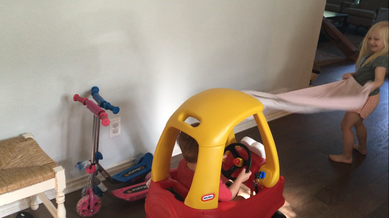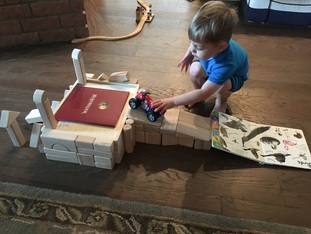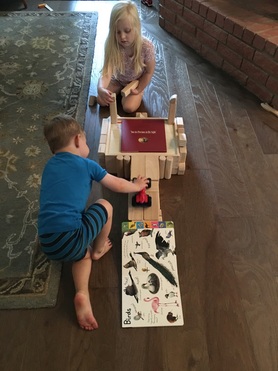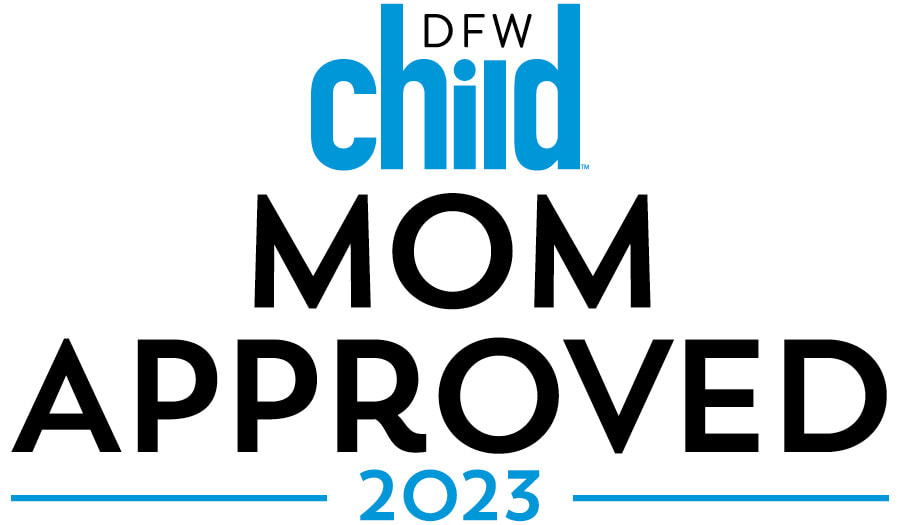Speech Happens
|
When you really break down aspects of communication and play, you realize how many skills children must coordinate for a successful play interaction. Play is reciprocal, so therefore language within play must be as well. Let's look at an example play routine: Pretend Carwash Play Routine
Clear Roles & Actions within that Role: This is where children use language such as, "you drive the car and I'll be the washer". This demands that the child either is able to respond to single or multi-step verbal directions of others or is able to give verbal directions to others, or hopefully BOTH. In reciprocal cooperative play, if directions given are unclear or there is a breakdown in understanding, the play is often abandoned by the participants. Negotiated Spatial Boundaries: Language around spacial concepts must be given clearly and understood--on, in, under, over there, beside, between, above, in front of. Securing Attention: Verbal and non-verbal means must be used to gain the attention of another prior to communicating. This could be calling a play partner's name to ensure they are listening or touching their arm to get their attention. Play also demands that children actively engage when a friend secure's their attention. Requesting Shared Materials: Play is constantly moving, as is access to materials. Participants must be able to negotiate trading of objects and requesting objects. This could include anything from, "want to trade" to asking for materials missing (e.g., "where's the fishing rod") to requests, "can I have the purple one?". This often includes descriptive language involving adjectives and/or coordination of gestures (e.g., pointing, open palm for giving). Appropriate Protests to Regulate Emotions: Things don't always go as planned and intentions are not always clearly understood or agreed upon. Language such as, "I don't like that", "I changed my mind", "don't do that" are powerful tools to communicate a protest. When a child can communicate through language versus a meltdown they can then negotiate a different plan of action--"let's do it this way", "I want to have one more minute and then give a turn". In most cases this language must be taught or modeled to children to support emotional regulation. Have questions about your child's development?
0 Comments
Two kids, two agendas, one space, and shared materials--this is what us speech language pathologists call cooperative play. As you may guess, it can be tricky. In our house it can become a long-lasting fun-filled activity or it can end in tears and yelling. Let's break down the differences in those two outcomes:
Cooperative play is one application of how play and language are so intertwined in development. Does your child have the communication skills needed to join in and play with siblings and other children? Stay tuned for our next blog, which will outline imperative communication skills needed in cooperative play. Have questions about your child's development?
|
AuthorJamie Cato is the founder of Holland Speech & Consulting and the mommy of two incredible kids, Sloan (5) and Jude (2), who unknowingly become the subject of many stories when it comes to the development of language, play, and emotional regulation. Archives
October 2019
Categories |




 RSS Feed
RSS Feed
